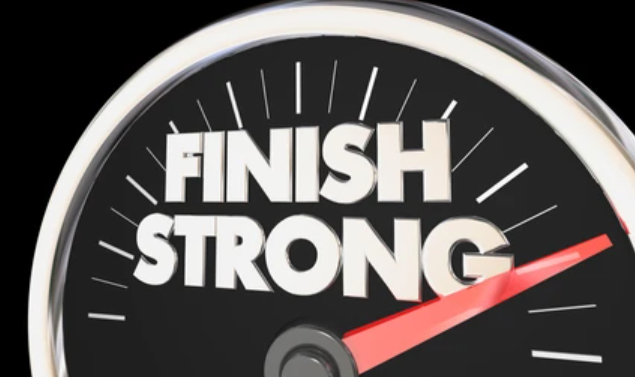
Every January, we feel that unique buzz of optimism—the notion that this year will be different, better, transformative. But for those in the middle of their PhD journey, that optimism can feel fleeting, quickly swallowed by deadlines, imposter syndrome, and the overwhelming nature of academia. Yet, 2025 doesn’t have to be just another year on the PhD treadmill. It can be the year you turn the corner, finish your research, and finally submit your dissertation.
Why 2025? Because starting the year with a renewed sense of purpose and a tangible plan could be the game-changer you’ve been waiting for. Research consistently highlights the psychological benefits of setting fresh goals at temporal landmarks, such as the start of a new year (Dai et al., 2014). This “fresh start effect” creates a mental division between past struggles and future possibilities, giving you the momentum needed to tackle challenges with renewed energy.
Moreover, you’re not starting from scratch. Think of how far you’ve already come: coursework, preliminary research in topic development, countless hours in the lab or the library doing literature review. 2025 is your opportunity to leverage all that hard work, refine your focus, and push toward the finish line towards dissertation defense and journal article development. Consider it the perfect alignment of your accumulated expertise and the clean slate the new year provides. Embracing this mindset allows you to approach your PhD with a blend of confidence and strategy.
To make 2025 your year, it’s crucial to start with clear intentions. For many doctoral candidates, this means shifting from a survival mentality to one of strategic action. A study by Golde (2000) on doctoral persistence found that those who view their PhD journey as a structured series of achievable steps—rather than a nebulous, endless process—are more likely to finish. The start of a new year is the perfect time to reframe your mindset, not as a student perpetually working but as a scholar actively completing a significant contribution to your field.
Finally, let’s not forget the external motivators. The academic calendar is built around cycles: developing qualitative, quantitative or mixed methodologies, data collection, statistical or qualitative analysis, conferences, grant applications, and journal publication deadlines. Aligning your efforts with these cycles can give you added urgency and structure. For instance, submitting parts of your dissertation to a 2025 conference not only pushes you to complete work by a specific deadline but also opens doors for feedback and networking that can accelerate your progress.
This blog will guide you through practical steps to ensure 2025 is the year you complete your PhD. From setting clear goals and developing sustainable habits to editing and refining your dissertation by addressing feedback from the reviews and making that final push, each section will offer actionable strategies to keep you motivated and on track. This year isn’t about perfection; it’s about progress. It’s about shedding old habits that didn’t serve you, embracing new strategies, and stepping confidently into the next phase of your academic career. So let’s make 2025 the year you stop dreaming about finishing your PhD and start making it happen.
Step 1: Assess Where You Stand

Before diving headfirst into ambitious plans, it’s essential to pause and assess exactly where you stand in your PhD journey. Think of this as taking inventory of your academic and emotional resources. By understanding your current position, you can set realistic goals, identify gaps, and strategize effectively for the year ahead.
- Review your progress: Break your PhD into its main components: coursework, comprehensive exams, research, writing, editing and administrative requirements. What’s already done? What’s in progress? What remains untouched? Write this down—seeing it all laid out can be daunting, but it’s also empowering because you now have a clear picture of what’s left to accomplish.
- Analyze feedback: Assess the feedback you’ve received from your dissertation coaches and committee. Are there recurring dissertation editing themes in their comments? Perhaps they’ve highlighted areas of strength you can capitalize on or weaknesses that require targeted effort. Engaging with this feedback proactively not only makes your work stronger but also shows your advisors that you’re committed to producing high-quality research.
- Gauge your emotional state: How do you feel about your PhD right now? Burned out? Motivated? Overwhelmed? Understanding your mental state is critical because it directly impacts your productivity. If you’re feeling stuck or discouraged, consider seeking dissertation help from peers, a mentor, or even a professional counselor who specializes in academic challenges. Studies show that emotional resilience plays a significant role in doctoral completion rates (Pyhältö et al., 2012).
- Identify external barriers: Are you juggling teaching responsibilities or part-time work? Do you have limited access to essential resources, like research materials or funding? Pinpointing these obstacles allows you to address them head-on, whether that means applying for grants, renegotiating workloads, or finding creative solutions to resource gaps.
Assessing where you stand isn’t about dwelling on what’s gone wrong. It’s about creating a clear and honest starting point so you can move forward with purpose. By understanding both your strengths and your challenges, you’ll be better equipped to make 2025 the year you finish your PhD and achieve the academic success you’ve worked so hard for.
Step 2: Set Clear, Achievable Goals

One of the most critical steps in successfully completing your PhD is breaking your larger dissertation journey into smaller, actionable tasks. It’s easy to feel overwhelmed by the sheer magnitude of what’s required—conducting quantitative or qualitative research, writing chapters from introduction to discussion, addressing feedback—but setting clear and achievable goals can help transform that chaos into a structured, manageable process.
Start with the big picture: What absolutely must be done for you to complete your PhD by the end of 2025? Identify the key milestones, such as finishing your experiments or data collection, writing individual chapters, revising and editing drafts, and preparing for your defense. From there, work backward to create sub-goals for each month or even each week. The SMART goal framework—making goals Specific, Measurable, Achievable, Relevant, and Time-bound—can be particularly helpful here (Doran, 1981).
For example, instead of setting a vague objective like “work on my dissertation,” try something concrete: “Complete the first draft of my qualitative or quantitative methods section by March 1, 2025.” This type of goal is not only clear but also gives you a specific deadline and an obvious measure of success. Breaking your work into smaller tasks also makes it easier to track progress, which can boost your motivation over time.
Another essential aspect of setting achievable goals is flexibility. Life happens—experiments fail, writer’s block strikes or family obligations arise. A rigid timeline that doesn’t allow for any setbacks can quickly become a source of stress. Instead, build some buffer time into your plan. For instance, if you think a particular chapter, like a literature review, will take a month to write, allocate six weeks to give yourself breathing room. This way, unexpected delays won’t completely derail your progress.
Goal-setting isn’t just about productivity; it’s also about prioritization. You likely have a dozen competing demands on your time, from teaching responsibilities to side projects. Be ruthless in deciding what’s truly essential to completing your PhD and learn to say no to tasks that don’t align with your end goals. A study by Boice (1990) on academic productivity found that scholars who focus on a few key priorities are significantly more likely to finish their projects than those who spread themselves too thin.
Finally, remember to celebrate small wins along the way. Completing a PhD is a marathon, not a sprint, and every step forward—no matter how small—deserves recognition. Did you finish a tricky section of statistical analysis? Reward yourself with a favorite meal or a day off. These moments of celebration can keep you motivated and remind you of the progress you’re making.
By setting clear, achievable goals, you can replace the stress of an endless to-do list with the satisfaction of steady, intentional progress. In doing so, you’ll position yourself to not only finish your PhD in 2025 but to do so with a sense of accomplishment and confidence.
Step 3: Create a Detailed Timeline

Once you’ve set clear, achievable goals, the next step is to create a detailed timeline to guide your progress. A well-thought-out timeline acts as both a roadmap and a motivational tool, keeping you focused and accountable throughout the year.
Start by breaking your PhD journey into broad phases. These might include completing research, drafting chapters, revising based on feedback, and preparing for your defense. Assign realistic deadlines to each phase. For instance, you might set a goal to finish all data collection by April, draft two chapters (literature review and quantitative or qualitative methodology) by July, and have a full first draft ready by October for IRB application. Be specific but flexible; timelines should be ambitious enough to challenge you but adaptable enough to account for unforeseen delays.
To create a timeline that works, consider using project management tools like Trello, Asana, or even a simple Gantt chart. These tools can help you visualize your tasks, track deadlines, and monitor your progress. Studies have shown that visualizing tasks in this way can reduce procrastination and increase productivity (Savino et al., 2017). Whether you’re a tech enthusiast or prefer an old-fashioned paper planner, find a system that suits your workflow.
Break each phase into smaller weekly or even daily tasks. For example, instead of simply listing “write introduction chapter” as a to-do item, divide it into smaller steps such as “outline main points,” “write the first draft of section one,” and “revise and edit.” Tackling these bite-sized tasks makes the workload feel more manageable and gives you a sense of accomplishment as you check items off your list.
While creating your timeline, don’t forget to build in buffer time. Research by Eppinger and Ulrich (2015) on project management highlights the importance of accounting for variability in complex tasks. In the context of a PhD, this might mean allowing extra weeks for troubleshooting experiments, revising drafts, or addressing unexpected editing feedback from your dissertation editor.
A crucial part of sticking to your timeline is regular review. Set aside time at the end of each week or month to evaluate your progress. Are you meeting your milestones? If not, why? Adjust your timeline as needed to stay on track without becoming overly rigid. This practice not only ensures that you stay accountable but also allows you to celebrate the milestones you’ve reached.
Finally, share your timeline with someone you trust, whether it’s a mentor, a colleague, or a fellow PhD candidate. External accountability can be a powerful motivator for those seeking dissertation help. When others are aware of your deadlines, you’re more likely to stick to them.
Creating a detailed timeline is more than just an exercise in planning; it’s a way to transform an overwhelming process into a series of manageable steps. With a clear roadmap in hand, you’ll navigate 2025 with purpose, efficiency, and the confidence that you’re steadily moving toward the ultimate goal of completing your PhD.
Step 4: Develop Sustainable Habits

Success in finishing your PhD isn’t just about bursts of intense productivity; it’s about building habits that you can sustain over time. Establishing a rhythm to your academic work ensures that progress happens consistently, even when motivation wanes. Developing sustainable habits is about creating systems that work for you, not against you.
Start by designing a writing routine. The habit of writing regularly, even in small increments within the introduction or literature review, can accumulate substantial progress over weeks and months. Research suggests that daily or near-daily writing significantly improves productivity for academics (Boice, 1990). Experiment with writing for a set amount of time each day, whether that’s 30 minutes or an hour, and stick to it. Over time, this routine will feel natural and non-negotiable.
Next, prioritize time management. Begin each week by planning your most important tasks and breaking them into manageable pieces. Consider adopting techniques like the Pomodoro Technique or time-blocking to maintain focus during work sessions. These methods help you maximize productivity while avoiding burnout.
Equally important is making room for rest and self-care. A PhD journey is very long and tedious, and ignoring your physical and mental well-being is a recipe for burnout. Make it a habit to include activities that recharge you, whether it’s exercise, meditation, or hobbies unrelated to academia. Studies consistently show that balanced lifestyles contribute to higher resilience and better academic performance (Schaufeli et al., 2002).
By developing sustainable habits, you create a framework for success that doesn’t rely solely on fleeting bursts of inspiration. Instead, it’s about showing up consistently and building momentum that carries you through to the finish line.
Step 5: Build a Support System

A strong support system can be the difference between struggling alone and thriving as you navigate your PhD journey. Completing a doctoral program is challenging, but surrounding yourself with the right people can provide guidance, encouragement, and accountability when you need it most.
Start by identifying your academic allies. Your dissertation advisor is an obvious first resource, but they shouldn’t be your only source of support. Build connections with committee members, senior colleagues, and other faculty who can offer diverse perspectives and advice. Regular check-ins with your advisor or mentors help ensure you’re on track and give you an opportunity to discuss challenges or roadblocks (Lovitts, 2001).
Beyond faculty, your peers are invaluable. Fellow PhD candidates are likely facing similar struggles with executing their qualitative or quantitative mythologies and forming or joining a support group can provide both solidarity and practical help. Writing groups, for instance, can create a sense of accountability and help you overcome procrastination. These groups are also great for exchanging feedback and refining your ideas (Lee & Boud, 2003).
Don’t underestimate the importance of emotional support. Friends and family may not fully understand the dynamics of your research, but they can still offer encouragement and a much-needed break from the academic grind. Lean on them for emotional boosts and stress relief. Sharing your goals and progress with them can also foster a sense of accountability.
For more formal support, consider professional networks. Academic organizations, conferences, and online communities are excellent places to connect with others in your field. Platforms like ResearchGate, LinkedIn, and even Twitter have vibrant academic communities where you can ask questions, share resources, and find inspiration. These connections can also open doors to collaborations and career opportunities (Meyer, 2010).
Lastly, don’t hesitate to seek dissertation help when needed. If you’re feeling overwhelmed or isolated, your university likely has resources such as counseling services, workshops, or dissertation consultants who can help you navigate challenges. Using these resources isn’t a sign of weakness; it’s a proactive step toward managing the demands of your PhD.
Building a support system isn’t just about having people to lean on during tough times—it’s about creating a network that celebrates your victories, keeps you accountable, and reminds you that you’re not in this alone. With a strong support system in place, you’ll be better equipped to face the challenges of your PhD and achieve your goals.
Step 6: Embrace Feedback and Revisions

Feedback and revisions are inevitable parts of the PhD journey, but they are also among the most valuable tools for academic growth. Embracing feedback—even when it’s critical— through dissertation editing can help you refine your work, enhance your arguments, and ultimately produce a dissertation you’re proud of.
First, understand that feedback is not a personal critique but a professional necessity. Feedback from advisors, committee members, dissertation coaches, or peers is meant to strengthen your work and ensure it meets the rigorous standards of academia. A study by Hattie and Timperley (2007) highlights the importance of constructive feedback in improving performance, emphasizing that feedback should focus on specific tasks and provide actionable steps for improvement. When you receive feedback, approach it with an open mind and a willingness to learn. To make the most of feedback, create a systematic approach to incorporate it into your work:
- Categorize comments: Which ones address major structural issues? Which ones focus on clarity or grammar? Prioritize addressing the high-impact feedback first, as this will have the most significant effect on the quality of your dissertation.
- Seek clarification when needed: If feedback is unclear, don’t hesitate to ask for more details. A brief conversation with your advisor or committee member can save you hours of confusion and rework. Research by Carless (2016) suggests that dialogic feedback—a two-way exchange between the giver and receiver—is more effective than one-sided commentary in promoting understanding and improvement.
- Manage your time effectively: Set aside dedicated time to review and address feedback and break the process into manageable chunks. For instance, instead of trying to overhaul an entire chapter in one sitting, focus on revising one section at a time. This approach reduces overwhelm and ensures each part of your dissertation gets the attention it deserves.
While feedback is vital, it’s equally important to recognize when to stand by your ideas. Academic work often involves intellectual debate, and there may be times when you need to respectfully defend your choices. Be prepared to explain the rationale behind your arguments, qualitative, quantitative, mixed methodologies or conclusions. This doesn’t mean ignoring feedback but rather engaging with it critically to determine what aligns with your vision for your dissertation.
Finally, remember that revisions are part of the process, not a sign of failure. Every great dissertation goes through multiple drafts and iterations. Embracing this reality can help you maintain a positive mindset and stay motivated. Celebrate the progress you’re making with each round of revisions, knowing that you’re one step closer to completing your PhD.
Feedback and revisions may feel daunting, but they are opportunities to grow as a scholar and refine your work. By approaching them with a constructive mindset and a strategic plan, you can turn critique into a powerful tool for success.
Step 7: Prepare for the Final Push

The final stretch of your PhD journey can feel both exhilarating and overwhelming. By this stage, you’ve done most of the heavy lifting, but crossing the finish line requires focused effort, meticulous planning, and a calm, determined mindset.
- Finalize your dissertation draft: It’s time to pull everything together. Double-check that all your sections flow logically, address key questions from your research, and meet academic standards. Spend time fine-tuning your writing—polishing your arguments and ensuring your citations are accurate. Don’t glance over formatting; a well-organized dissertation makes a strong impression.
- Create a submission timeline: Map out the last leg of your journey. Set deadlines for proofreading, implementing final revisions, and completing administrative tasks like securing committee approvals. Be realistic but firm with yourself about meeting these dates. Avoid cramming everything into the last week.
- Prepare for your defense: Treat this as a rehearsal for showcasing your expertise. Review your dissertation thoroughly, anticipate tough questions from committee members, and practice concise, confident explanations of your research. Conduct mock defenses with peers to build confidence and improve your presentation.
- Manage stress proactively: This phase is intense, but you don’t have to let stress take over. Build in self-care routines like daily walks, meditation, or simply talking to a friend. Short breaks can recharge your mind and help you focus more effectively.
- Check all submission logistics: Double-check every institutional requirement. Print physical copies if required, secure signatures well in advance, and upload your dissertation through the correct platform. Ensure no detail is overlooked that could delay your submission.
- Celebrate the wins: Acknowledge every milestone—whether it’s finishing a draft or nailing a mock defense. Celebrating these moments keeps your motivation high and reminds you how far you’ve come.
The final push is as much about mindset as it is about execution. Keep your eyes on the prize, trust the work you’ve accomplished, and remind yourself that this is the culmination of years of dedication. By preparing thoroughly and staying focused, you’ll not only finish your PhD but also emerge ready for whatever lies ahead.
Conclusion
As the year unfolds, you may face moments of doubt and exhaustion—that’s a given in any PhD journey. But finishing your dissertation in 2025 is not just about grinding through to the end; it’s about doing so with confidence and purpose. This final phase of your academic marathon can become an empowering experience if you approach it with the right mindset and strategies.
Focus on progress over perfection. It’s easy to get caught up in making your dissertation flawless, but remember, no research is ever truly complete. What matters is that your work meets the standards of your field and contributes to ongoing scholarly conversations. Perfectionism can paralyze you—strive instead for work that’s polished, clear, and defensible. Our dissertation editor and dissertation coach can assist in refining your writing and ensuring your arguments are both compelling and concise.
Leverage the support systems you’ve built throughout your PhD journey. Whether it’s feedback from your advisor, insights from peers, or encouragement from friends and family, these networks are vital. Additionally, we offer comprehensive dissertation consulting and dissertation assistance to navigate complex revisions and finalize your work with confidence. Our dissertation consultation services provide tailored solutions for every stage of the process, from editing to consulting, ensuring your submission adheres to institutional guidelines.
Remember, celebrate milestones along the way. Don’t wait to celebrate the final submission. Every chapter completed, every section edited, and every step forward is an achievement worth recognizing. These small celebrations fuel your momentum and keep you motivated as you near the end. And with our help with dissertation editing and formatting, every milestone can feel manageable and meaningful.
Most importantly, believe in your ability to cross the finish line. Completing a PhD is one of the most challenging undertakings you can pursue, but it’s also one of the most rewarding. By maintaining focus, utilizing your resources, and trusting our expertise in dissertation services, you’ll not only finish your dissertation—you’ll do so with pride. If you need additional guidance, our dissertation consulting and professional dissertation help services are here to support you every step of the way.
As you step into 2025, embrace the confidence that comes from preparation, persistence, and perspective. You have everything you need to succeed. Now, it’s time to make it happen. 2025 is your year. Claim it with our help and your determination.
References
Boice, R. (1990). Professors as Writers: A Self-Help Guide to Productive Writing. Stillwater, OK: New Forums Press.
Boice, R. (1990). Professors as writers: A self-help guide to productive writing. Stillwater, OK: New Forums Press.
Carless, D. (2016). Feedback as dialogue. In Feedback in Higher and Professional Education (pp. 90-103). Routledge.
Dai, H., Milkman, K. L., & Riis, J. (2014). The fresh start effect: Temporal landmarks motivate aspirational behavior. Management Science, 60(10), 2563-2582.
Doran, G. T. (1981). There’s a SMART way to write management’s goals and objectives. Management Review, 70(11), 35-36.
Eppinger, S. D., & Ulrich, K. T. (2015). Product design and development (6th ed.). New York, NY: McGraw-Hill Education.
Golde, C. M. (2000). Should I stay or should I go? Student descriptions of the doctoral attrition process. The Review of Higher Education, 23(2), 199-227.
Hattie, J., & Timperley, H. (2007). The power of feedback. Review of Educational Research, 77(1), 81-112.
Lee, A., & Boud, D. (2003). Writing groups, change and academic identity: Research development as local practice. Studies in Higher Education, 28(2), 187-200.
Lovitts, B. E. (2001). Leaving the ivory tower: The causes and consequences of departure from doctoral study. Rowman & Littlefield.
Meyer, J. H. F. (2010). A reflection on the formal mentoring process in higher education: Context, trends and challenges. Studies in Continuing Education, 32(1), 27-36.
Pyhältö, K., Stubb, J., & Lonka, K. (2012). Developing scholarly communities as learning environments for doctoral students. International Journal for Researcher Development, 3(2), 99-119.
Savino, M. M., Manzini, R., & Mazza, A. (2017). Assessing the impact of visualization on project performance. International Journal of Project Management, 35(3), 507-517.
Schaufeli, W. B., Martinez, I. M., Pinto, A. M., Salanova, M., & Bakker, A. B. (2002). Burnout and engagement in university students: A cross-national study. Journal of Cross-Cultural Psychology, 33(5), 464-481.